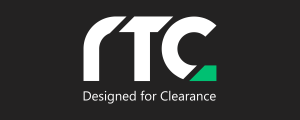- Overview of e-Invoicing in Belgium: e-Invoicing represents a digital transformation of traditional invoicing processes in Belgium, facilitating electronic exchanges between suppliers and buyers, improving operational efficiency, speeding up processing times, and reducing the environmental impact of paper invoices.
- B2B and B2G e-Invoicing: Business-to-Business (B2B) e-Invoicing enables digital invoice transmission between companies, enhancing transaction speed and accuracy, while Business-to-Government (B2G) e-Invoicing is mandatory for government contracts, streamlining public administration and promoting transparency in procurement processes.
- Mandatory Implementation Timeline: e-Invoicing will become mandatory in Belgium for all domestic B2B transactions starting January 1, 2026, with current obligations already in place for suppliers involved in B2G contracts.
- Requirements and Compliance: To qualify as an e-Invoice, it must include traditional invoice details and comply with national regulations and European standards. Businesses must adopt compliant e-Invoicing software to generate and manage invoices effectively.
- Benefits and Penalties: e-Invoicing offers advantages such as enhanced efficiency and reduced operational costs, benefiting businesses of all sizes. Non-compliance can lead to significant penalties, including fines proportional to the VAT due for serious infractions and fixed penalties for general non-compliance.
Source RTCsuite
Click on the logo to visit the website
Latest Posts in "Belgium"
- Belgium Surpasses One Million Peppol Recipients, Sets Benchmark for E-Invoicing Adoption and Compliance
- Belgium Extends VAT Review Period to 15 Years for Major Building Renovations and Extensions
- Belgium ET14000 Permit: Apply via MyMinfin (Import VAT Deferment)
- Belgium Approves Broad VAT Reforms: Stricter Compliance, Longer Adjustments, and Administrative Simplifications
- Belgian eInvoicing Go-Live: Key Early Challenges and Lessons for Tax, Finance, and IT Teams
















